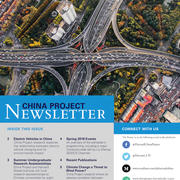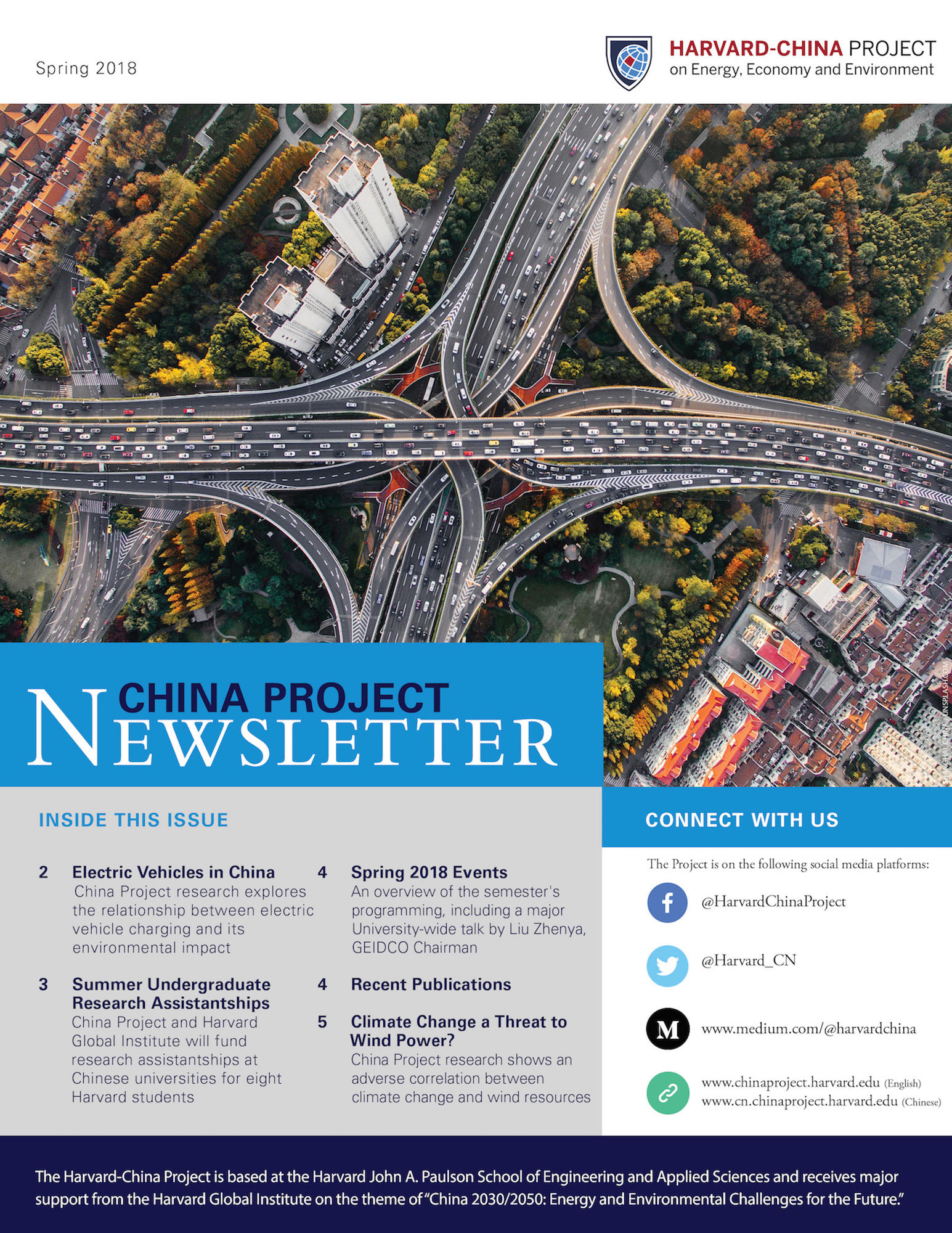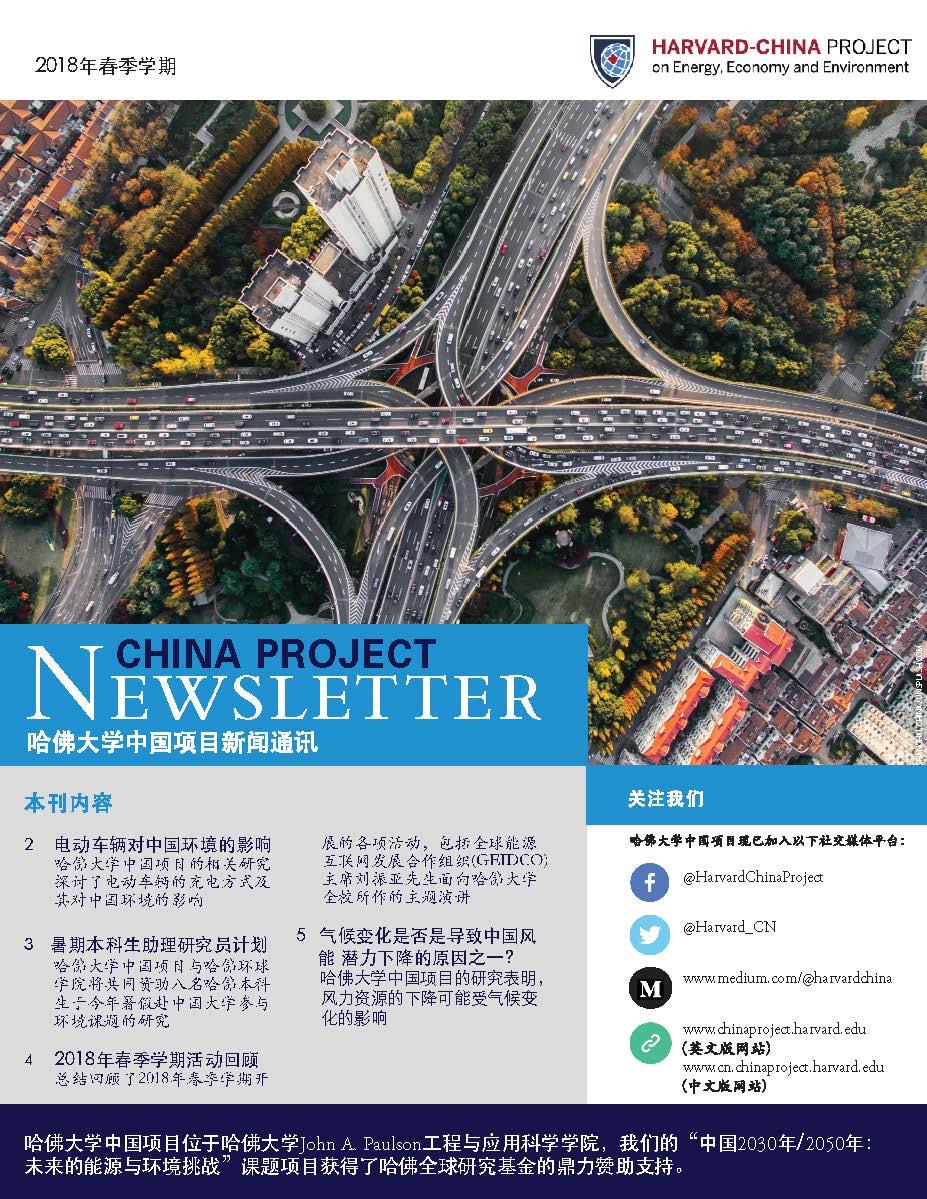
This spring the Harvard-China Project continued its investigations of the “China 2030/2050” theme sponsored by the Harvard Global Institute (HGI). Our community explored a number of pressing issues, including a Nature Energy paper on the environmental implications of electric vehicle charging in China. The research, which offers a strategy for reducing CO2 emissions and improving air quality with electric vehicles in Beijing, was authored by a Harvard-Tsinghua team, consisting of China Project Chair Michael B. McElroy, Executive Director Chris P. Nielsen, and Environmental Science and Engineering Research Associate Xinyu Chen, as well as Hongcai Zhang, Zhiwei Xu, and Jiajun Lv.
The China Project also published a paper in the Nature journal Scientific Reports that found climate change might explain declining wind power potential in China. Tiffany Chan from the Harvard-China Project sat down with one of the co-authors of the paper, Ph.D. student Peter Sherman, to discuss the team’s findings.
The spring also brought a number of major events and programming, including a public lecture by Liu Zhenya, former chairman and president of State Grid Corporation of China, the world’s largest utility company, and currently chairman of the Global Energy Interconnection Development and Cooperation Organization. His talk, "The Art of Energy Revolution: From Ultra High Voltage Power Grids to Global Energy Interconnection," explored the prospect of constructing a network of ultra-high voltage transmission lines to interconnect electric grids across much of the world by 2050 to 2070, making renewable power a reality for consumers across the globe.
Building on last year’s summer undergraduate research program in Beijing, the China Project under the "China 2030/2050 Initiative" sponsored by the Harvard Global Institute will provide full funding for eight Harvard students to complete research assistantships with Tsinghua University and Chinese University of Hong Kong faculty members as part of the “China’s Environmental Challenges 2018: Summer Undergraduate Research Assistantships in China” program. Their projects range from the effects of arsenic contamination of groundwater, to the policy design of banning residential coal use in rural areas around Beijing, to the climate implications of electric vehicles.
Lastly, follow the China Project on our social media platforms to stay abreast of news, events, and commentaries.
Facebook: https://www.facebook.com/harvardchinaproject
Twitter: https://twitter.com/harvard_cn
Medium (blog platform): https://medium.com/@harvardchina
Follow the links below to download the English and Chinese version of the newsletter.


